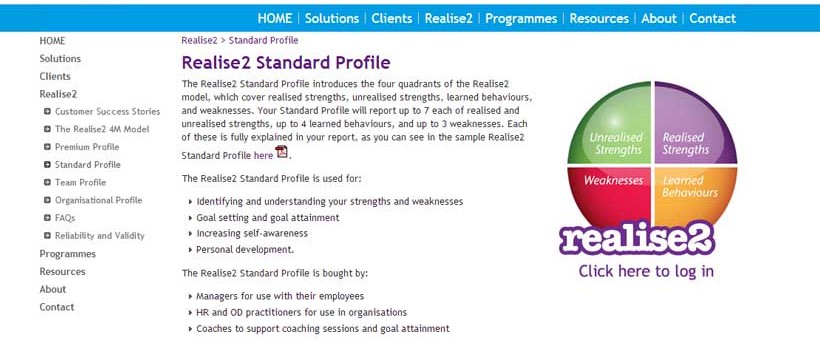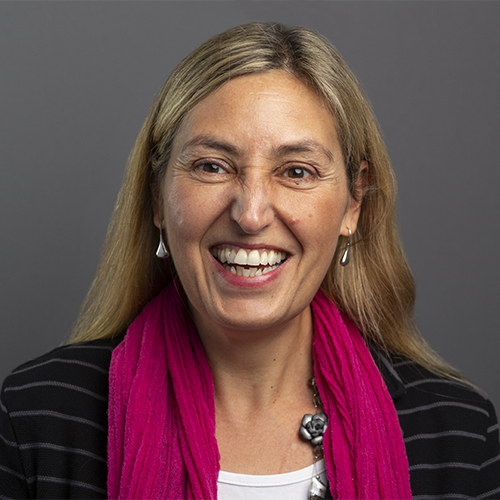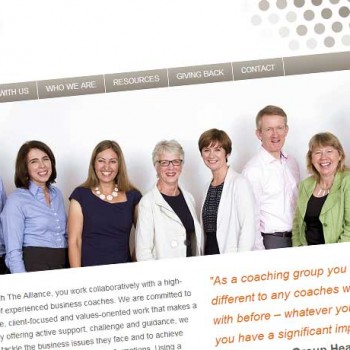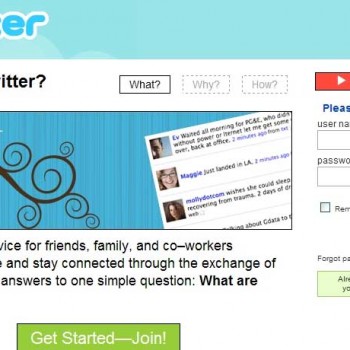
Realise Your Strengths: Coaching Fishbowl with Alex Linley
- Posted by Liz Gooster
- 0 Comments
- Alex Linley, coaching fishbowl, psychometric tools, Realise 2, strengths, weaknesses
Coaching fishbowls always put me in awe of both the coach and the person being coached, awe of their bravery in exposing themselves, their expertise and some of their innermost thoughts and doubts to public scrutiny. Alex Linley’s fishbowl on Realise 2 was no exception. The room was spellbound as Alex – calm, composed, comfortable in a deep aura of gravitas – debriefed his ‘fish’ on his strengths and weaknesses. As an observer, it’s impossible to know how the experience felt for the person being coached, but it seemed as though some clarifying nuggets were gained and several pointers for change and action taken away. This is exactly what you’d hope for as a coach using Realise 2 with a client.
Realise 2 is a strengths assessment tool which seeks to give a holistic picture of a person, viewing their strengths and weaknesses against the three axes of performance, energy and use. It gives a 3D image if you will, based on the 4M model. Having filled in a questionnaire which asks you to rate attributes on how well you perform them, how energised you are by doing them and how often you use them, your personal 4M profile is generated in the form of a 2×2 grid. In the top right quadrant sit your ‘realised strengths’, those things you do well, you do often and which energise you. These are strengths you should marshal (the first ‘M’). Moving clockwise, which is the recommended order for a coaching debrief on the profile, because this means you end on a positive, developmental note, you reach ‘learned behaviours’ in the bottom left. These are things you do well, but which you find more draining than energising. You may or may not use these skills frequently and the advice here is to moderate (second ‘M’) their use.
Next up are your ‘weaknesses’, deliberately labelled as such to counter the popular preconception that we need to conquer our weaknesses, which Alex refreshingly describes as ‘garbage’! No one can be good at everything and while we can mitigate the negative impact of our weaknesses – and Realise 2 can help us do this – Alex likes to quote Peter Drucker, who exhorts us to ‘make our strengths productive in order to make our weaknesses irrelevant’. In Realise 2, the guidance is to minimise (third ‘M’) your use of these behaviours.
Finally we come round to the top left quadrant which contains our unrealised strengths. This is possibly the area where we have the greatest potential to make positive change, as these are the things that we do well, are energised by doing but don’t do very often. If we could do these things more, it stands to reason that we could raise both our levels of performance and satisfaction. The advice here, unsurprisingly, is to seek to maximise (fourth ‘M’) these behaviours and how to do so is part of the Realise 2 coaching session.
One of the things which Alex does so skilfully, based on his deep familiarity with the instrument and his experience of using it with a large number of people, is to draw out connections and dynamics. For instance, he points out how strengths, especially if overused, can squeeze out other possible strengths and helps clients begin to identify strategies to allow other abilities to come to the fore, even if only occasionally. I’ve used Realise 2 before, but watching it in action while being enveloped in ‘the great Alex Linley aura’ made me see its benefits operating at a palpably different level. For me the fishbowl was gripping proof of the value of this tool when used precisely and thoughtfully. In Alex’s words, Realise 2 is ‘not a surgical instrument, but a tool to start a conversation’. I’d like to be able to have conversations like the one we witnessed. So much so that I’m already in the process of signing up for Realise 2 training!
If you liked this, you might be interested in:
- If you’d like to take the Realise 2 test yourself, or use it with coaching clients, you can download it here
- For more coaching fishbowls like the one I attended, see the Meyler Campbell website

I like to describe myself as happily ‘At Large’ in an independent portfolio career, balancing coaching, leadership development, coach training and being a mum to my young daughter. Positive psychology is a big influence on my work and I’ve recently gained an MSc in Applied Positive Psychology & Coaching Psychology from the University of East London. My interests include reading, writing, travel, yoga, Zumba, coffee and wine! Connect with me on LinkedIn and sign up for my newsletter, Positive Intentions.



0 Comments